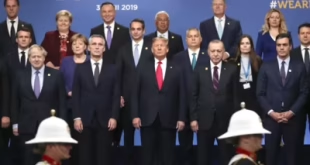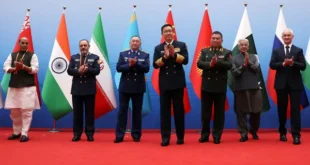- An Army captain was court-martialled after a Court of Inquiry (CoI) and subsequent summary of evidence found that troops under his command had exceeded their powers under the Armed Forces (Special Powers) Act.
- Court-martial is a procedure for trials of the military personnel for violating the military laws or making any military offences.
- It is conducted in a military court.
- There are twelve groups of people who can be trialed under court-martial or the military justice system including:
- the military personnel,
- members of a quasi-military organisation (public sectors working with the armed force),
- prisoner of military and war
- some specific civilians can be trialed under court martial despite the place of occurrence of the offence.
- Court-martial cannot trial civil proceedings.
- Courts-martial may be used to try prisoners of war for war crimes.
- The Geneva Convention requires that POWs who are on trial for war crimes be subject to the same procedures as would be the holding army’s own soldiers.
Court martial in India
- Indian Army has four kinds of court martial:
- General Court Martial (GCM),
- District Court Martial (DCM),
- Summary General Court Martial (SGCM) and
- Summary Court Martial (SCM).
According to the Army Act, Army courts can try personnel for all kinds of offences except for murder and rape of a civilian, which are tried by a civil court.
- The Indian Army is still following the system of military justice it inherited from the British.
- The provisions for summary courts martial were not introduced into the regular army till the sepoy mutiny of 1857.
- The commandant had practically no power to punish or reward his own men.
- Here, the need of a military court was felt, and thus created.
- This enabled the commanding officer to convict and sentence a military offender.
Process of court martial:
- When the Army wants an allegation against its personnel investigated, it first sets up a Court of Inquiry (CoI) for the purpose.
- This stage is similar to the registering of a First Information Report (FIR) by police.
- A Court of Inquiry investigates the complaint, but cannot award a punishment.
- Based on the findings of the CoI, a tentative chargesheet is drawn up by the commanding officer of the accused officer, which is akin to the police filing a chargesheet.
- Then the hearing of charges takes place, which is like the initial summoning of an accused by the magistrate in a case involving civilians.
- The summary of evidence is then recorded, which is akin to the framing of charges by the magistrate.
- Then a general court martial (GCM) is ordered.
- This stage is like the conduct of a trial by any judicial court in matters involving civilians.
- While in a magisterial court, the magistrate announces a sentence when the trials are over, the GCM announces this in the form of recommendations, which are sent to the command concerned for legal vetting
Legal recourse
- Under section 164 of the Army Act, the accused can file a pre-confirmation petition as well as one post- confirmation.
- A pre-confirmation petition will go to the Army Commander, who may look into its merits.
- Post-confirmation petition must be filed with the government after confirmation of the sentence by the Army commander.
- After these options have been exhausted, the accused can approach the Armed Forces Tribunal, which can suspend the sentence.
SOURCE: THE HINDU, THE ECONOMIC TIMES, PIB
 Chinmaya IAS Academy – Current Affairs Chinmaya IAS Academy – Current Affairs
Chinmaya IAS Academy – Current Affairs Chinmaya IAS Academy – Current Affairs



